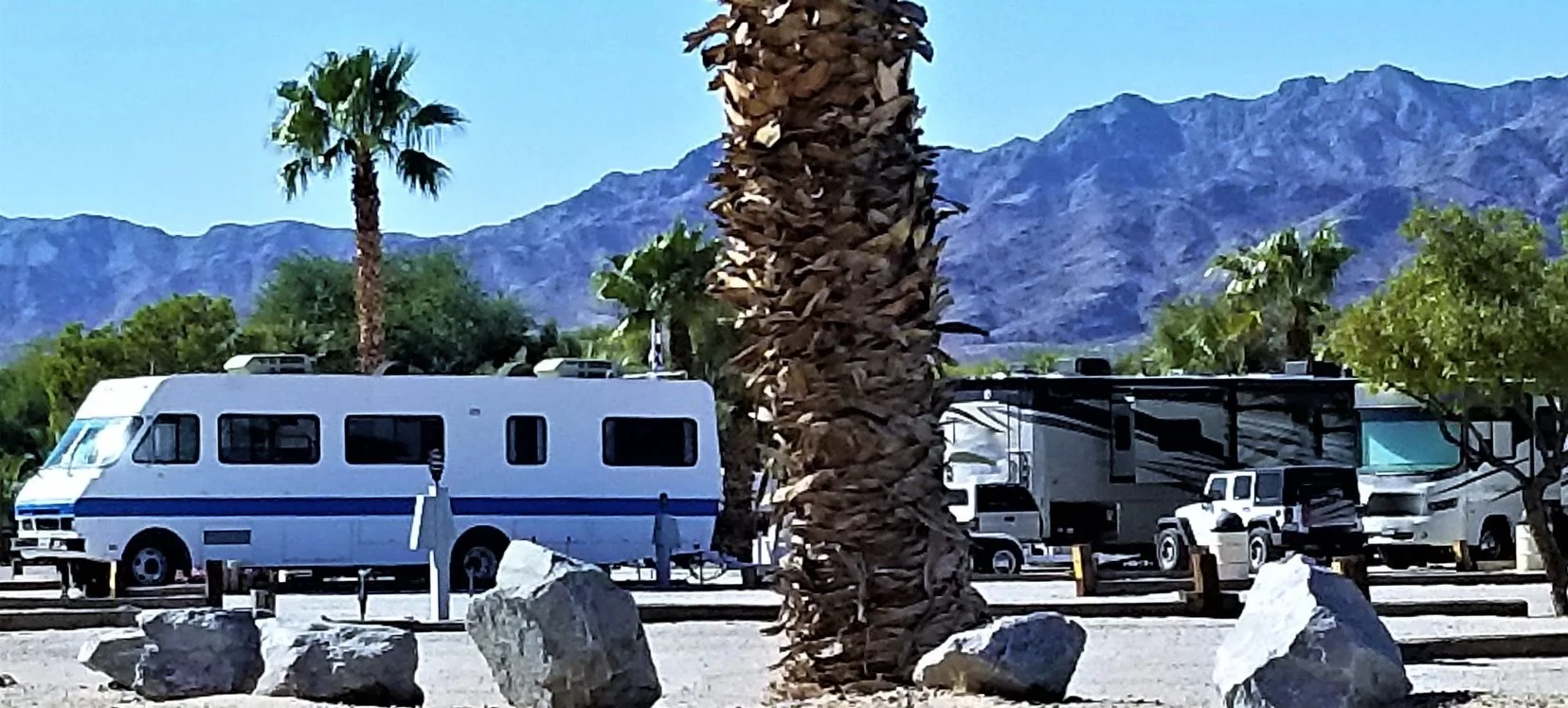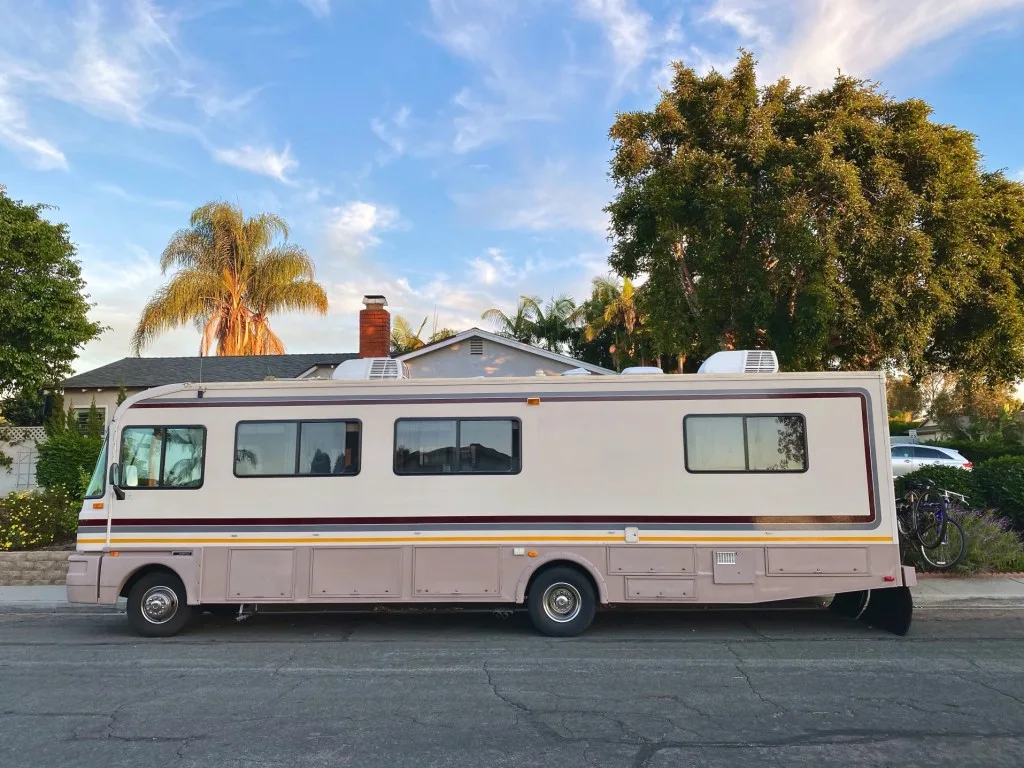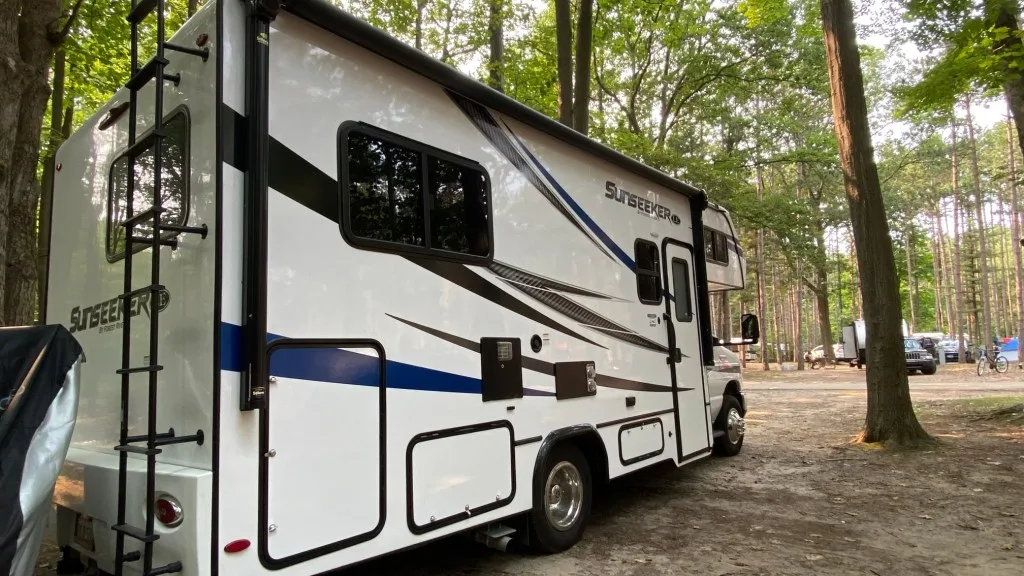How to Respond When an RV Park Asks “How Long Is Your RV?”
When it comes to your RV and a campsite, size – or length – does matter. So, you want to be mindful of your RV’s length versus the site’s length when making reservations.
Can you imagine? It certainly won’t be an enjoyable evening if you discover the campsite’s too small and nothing else is available. You’re likely not going to be a happy camper as you’re scrambling to come up with a solution.
Today we’ll look at how you should respond when asked about the length of your RV at a campground.
Let’s get started!
Why Do RV Parks Need to Know How Long Your RV Is?
RVs have grown massively over the past few decades. Some campgrounds have upgraded their sites and infrastructure to accommodate larger rigs, but not all have. You don’t want to arrive at your site and discover that the site is too small for your rig.
RV parks want to ensure you have a great stay and that you and other campers are comfortable. If your site is too small for you, you’re likely not going to have a good time during your stay. They also don’t want damage to your RV, their facilities, or other RVs.

How Do Campgrounds Determine Site Length?
Campgrounds often have parking curbs at the end of the campsite. The parking curb protects RVs from rolling backward and into other RVs or trees and as the starting point for measuring the site length. When campgrounds determine a site’s length, they often measure from the curb to the end of the site.
Pro Tip: Knowing your RV measurements is important! Read more about Why You Shouldn’t Assume Your RV Will Fit There!
Why Do Some Campgrounds Have Different Length Restrictions for Different Types of RVs?
You might be looking to reserve a campsite and see different length restrictions based on different types of RVs. This can be confusing, but it’s important to remember that the different RVs often require extra space for maneuvering.
This is especially true for back-in sites, which have a tighter turning radius that may be difficult to achieve in a towable camper. These sites will often have a longer length for motorhomes than for trailers.

How to Respond To the RV Length Question
Always give the length of your RV without the tow vehicle’s length included when asked. You may be able to fit into a shorter site if there’s a convenient place nearby to park your tow vehicle.
Once you give the campground your length measurements, you may want to ask what the limitations mean. Some sites will have a stopping block but have plenty of room behind the stopping block. This can allow you to back your wheels up against the stopping block and allow any length that extends beyond your rear axles to hang over the stopping block.
However, the length restrictions may be in place due to trees or other objects that could make it difficult or impossible to get a longer RV into the site. So asking about the limitations can give you a better idea of what to expect when you arrive at the site.

Should You Lie About the Length?
We don’t recommend lying to the campground about your RV length. The campground could force you into another site to accommodate large rigs in the site. Some campgrounds have minimum length requirements to ensure smaller rigs aren’t using a site designed for larger rigs.
Adding a few inches or a foot to your RV’s length may be excusable, but anything excessive may be overboard. However, you don’t want to make a bad impression with the campground staff upon arrival by them discovering you lied about your RV’s length during registration.
Pro Tip: Worried your motorhome won’t fit where you want to drive it? Discover What’s The Perfect Length RV?

What Happens If You Can’t Fit in an RV Site Once You Arrive?
Typically the campground staff will do all that they can to accommodate you. If a site is available that will fit you, they’ll likely move you with no issues. You may have to pay any fees if there is a difference in pricing.
However, the campground staff aren’t magicians. They cannot make a site appear out of anywhere if there’s not a site available. They cannot change others’ reservations because you booked a site that doesn’t work for your RV. They’re likely going to do whatever they can to come up with a solution to the problem, but it’s not always possible.
If there are no sites available for you, they may or may not issue you a refund and provide suggestions for alternative campgrounds. It’s your responsibility to ensure that the site you are booking is suitable for your RV setup.

Length Restrictions Don’t Just Apply to the Campsite
A campground may have restrictions regarding RV size because roads, bridges, and clearances aren’t able to handle larger vehicles. You want to make sure that the roads leading to the campground are safe to navigate if you have a larger rig.
You don’t want to find yourself crossing a bridge that you’re too heavy for or approaching a tunnel with low overhead clearance. While it may be frustrating, it’s essential to understand that restrictions are typically there for a reason.
Conclusion
Knowing your RV’s dimensions is essential when booking a site at a campground. You don’t want to pull up to your campsite only to discover that you’re not able to fit your RV into the site. This can leave you scrambling to develop a plan B in terms of a place to stay for the night.
So make sure you know your RV’s length and that you communicate it, and double-check the site length when making a reservation. How long is your RV?
Discover the Best Free Camping Across the USA
To be honest with you, we hate paying for camping. There are so many free campsites in America (with complete privacy).
You should give it a try!
As a matter of fact, these free campsites are yours. Every time you pay federal taxes, you’re contributing to these lands.
Become a FREE CAMPING INSIDER and join the 100,000 campers who love to score the best site!
We’ll send you the 50 Best Free Campsites in the USA (one per state). Access the list by submitting your email below:
Be honest; you’re only going to be embarrassed when you show up with a larger rig that won’t fit into a space that can’t accommodate your rig…. It’s a simple field problem.
And, speaking of length, remember that if you have a bicycle rack on the back end of your RV you need to include that as well. A lot of bicycle racks need additional room to swing out of the way to access the rear doors, so make sure you have clearance for that.
I just tell them the length of site I want. I say “my trailer is 24′ but I usually require about 40′ or longer for my truck and trailer.” That way, they can let me know right there and then if they’re going to squeeze me into a site 2 inches longer than my trailer. Then, I can decide from there if I want to stay or not.
I have occasionally booked sited shorter than my rig but either ridden my bike / driven thru first, or viewed sattelite images. I have found that state parks tend to be pretty conservative and have a few feet (usually 5-10) extra at least. Only once questioned, but not refused. This advice is worth what you paid for it …
I have a 32 ft travel trailer, back bumper to hitch but the box is 26 ft. Some campgrounds tell me they only care about the box length but others want the total frame length. Very confusing!